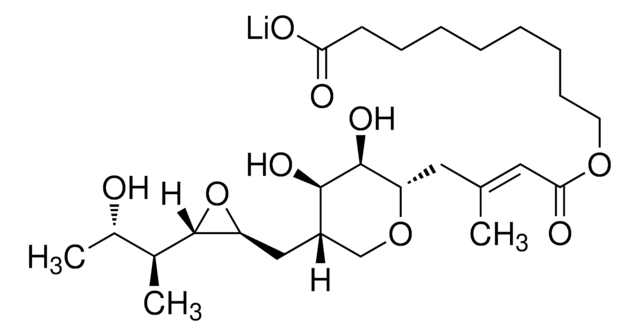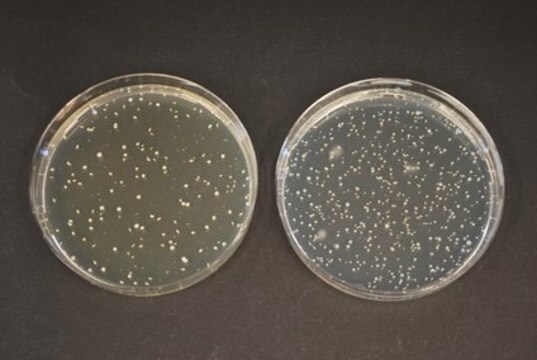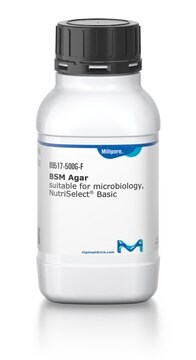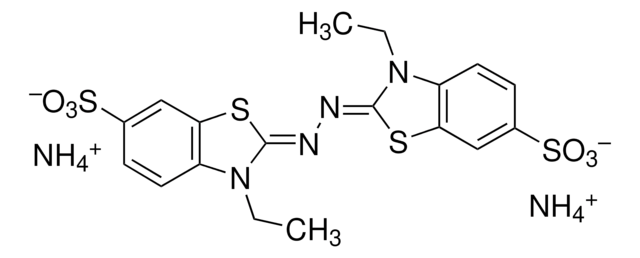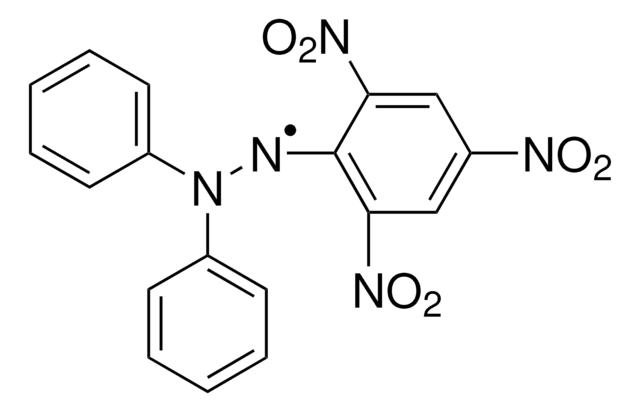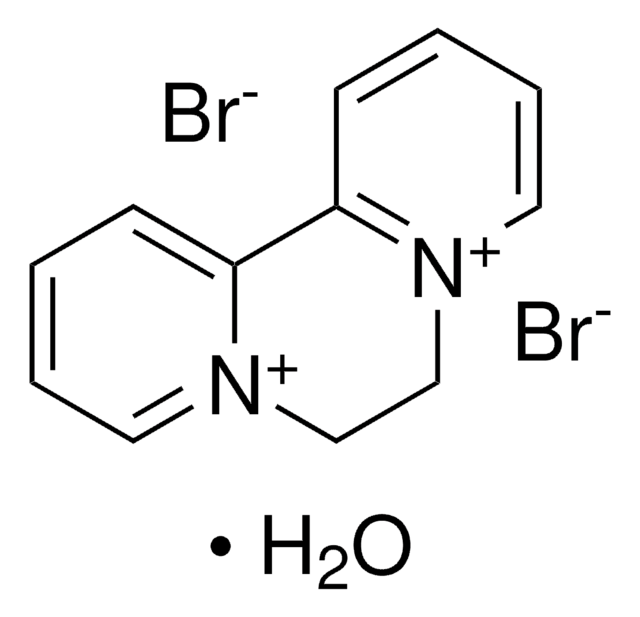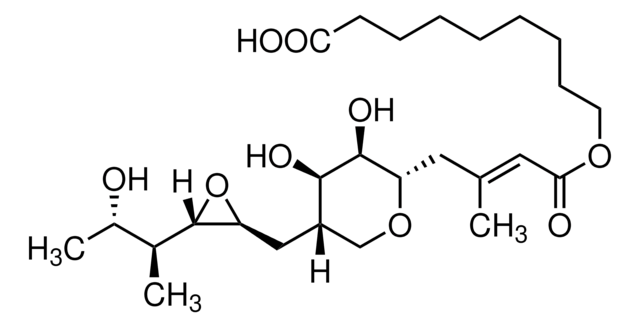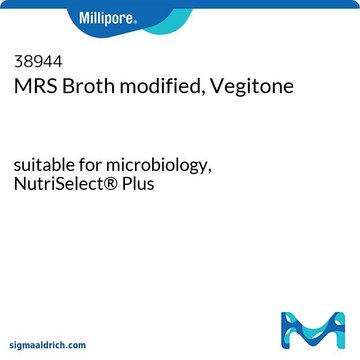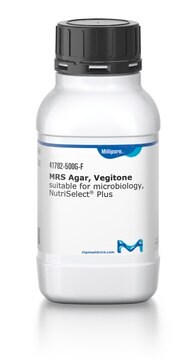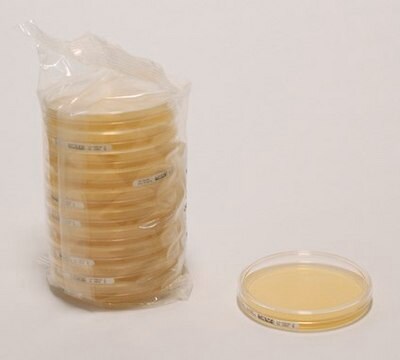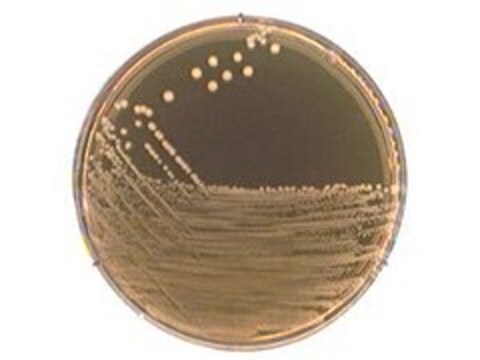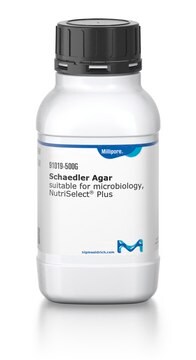43314
TOS-propionate agar medium (acc. ISO)
NutriSelect® Plus, suitable for microbiology
Synonym(s):
BSC Propionate Agar Base, Bifidobacteria Selective Count Agar Base, TOS-MUP Agar (Base), Transgalctosylated oligiosaccharide agar medium
About This Item
Recommended Products
Agency
according to ISO 29981:2010 IDF 220:2010
Quality Level
sterility
non-sterile
form
powder
shelf life
limited shelf life, expiry date on the label
composition
agar, 15 g/L
ammonium sulfate, 3 g/L
casein enzymic hydrolysate, 10 g/L
L-cysteine hydrochloride, monohydrate, 0.5 g/L
dipotassium hydrogen phosphate, 4.8 g/L
Galactooligosaccharide, 10 g/L
magnesium sulfate heptahydrate, 0.2 g/L
Potassium dihydrogen phosphate, 3 g/L
sodium propionate, 15 g/L
yeast extract, 1 g/L
manufacturer/tradename
NutriSelect® Plus
technique(s)
microbiological culture: suitable
final pH
6.3±0.2 (25 °C)
application(s)
food and beverages
microbiology
suitability
Bifidobacterium spp.
Related Categories
General description
Application
Preparation Note
For selective isolation of Bifidobacteria add contents of 2 x 25 ml vials of Lithium mupirocin Supplement (Cat. No. 69732). Mix carefully to avoid the formation of air bubbles and dispense as desired.
Note: This medium being sensitive to heat, excessive heat treatment may therefore indicatively influence the properties of the medium. For more selectivity Glacial acetic acid (Bifido Selective Supplement B, Cat. No. 90577) may also be added. After addition of Bifido Selective Supplement B pH of the medium will shift to the acidic side, which does not affect the performance of the medium.
Footnote
The designations basic, plus, or prime are added to indicate the quality control level, from basic quality control to standard QC plus to prime for full regulatory compliance.
Legal Information
Storage Class Code
11 - Combustible Solids
WGK
WGK 3
Choose from one of the most recent versions:
Already Own This Product?
Find documentation for the products that you have recently purchased in the Document Library.
Customers Also Viewed
Our team of scientists has experience in all areas of research including Life Science, Material Science, Chemical Synthesis, Chromatography, Analytical and many others.
Contact Technical Service